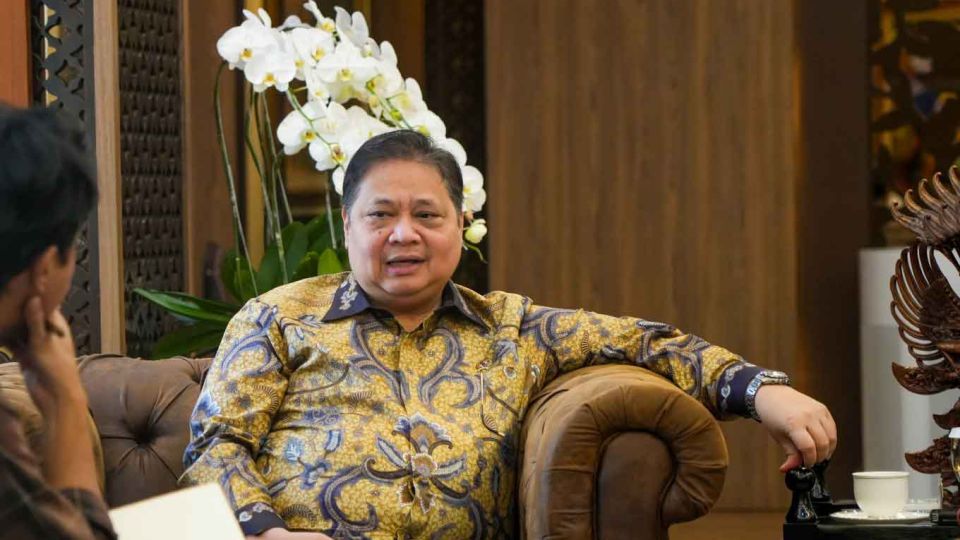October 6, 2025
JAKARTA – The government is looking to sign a bilateral trade agreement with the United States by the end of this month as the two sides aim to iron out details left open in a handshake deal announced in July.
Coordinating Economy Minister Airlangga Hartarto, who helms the Indonesian delegation in the tariff negotiations, told reporters on Tuesday that the bilateral talks were over and the process was now in the “legal drafting” stage, which would “hopefully be finished this October”.
The Indonesian delegation has scheduled at least six virtual meetings with the US Trade Representative (USTR) Office over the coming weeks and plans to fly to Washington, DC, at the end of the month to sign the Agreement on Reciprocal Trade (ART), which would make Indonesia one of the first countries to do so.
The archipelago was also among the first to secure a framework tariff agreement with the US government that brought the duties imposed on Indonesian exports down from a threatened 32 percent to 19 percent in July, in exchange for various concessions, only to find out later that other Southeast Asian countries would receive the exact same rate without as many concessions.
The virtual meetings are not expected to result in a tariff lower than the agreed-upon 19 percent, a figure deemed to be cast in stone. Rather, the talks will focus on details that remained unaddressed in the handshake deal, such as the list of commodities exempted from the so-called reciprocal US tariff.
Airlangga said “it’s not final until it’s signed” but added that it was “almost certain” that palm oil, natural rubber and cacao would be subject to 0 percent import duties.
Washington has agreed to exempt most of the agricultural commodities the US is unable to grow itself, and Jakarta is looking to add more commodities onto the list, but no details have been revealed.
The intersession meetings, the first of which took place on Wednesday, would also cover the subject of nontariff trade barriers, in which Indonesia committed to taking down various measures and generally deregulate imports as part of its concessions to the US.
The US government entered a shutdown on Wednesday due to a budgetary impasse within the US Congress, which brought nonessential federal operations to a temporary halt that will last until lawmakers find a bipartisan resolution on the budget.
Hundreds of thousands of federal workers are furloughed during the shutdown, but the USTR Office is retaining more staff than it used to during past funding lapses, Politico reported on Wednesday.
Airlangga told reporters on Friday that the shutdown had halted the US-Indonesian bilateral online meetings on the trade pact. The US Embassy in Jakarta and the USTR did not respond to the Post’s enquiries on the matter.
Washington has not enforced the agreed reciprocal tariffs with any country yet, since enforcement requires ratification of the ART, which is expected to take months once an agreement has been signed.
Depending on whether Jakarta categorizes the ART as an agreement requiring just a presidential regulation to ratify or a Law involving the House of Representatives, the ratification process could take either three to six months or six to 12 months, said Permata Bank chief economist Josua Pardede.
He told The Jakarta Post on Thursday that, “even after ratification, the reciprocal tariff could only be put in operation once the technical regulations and systems are ready”.
Josua estimated that the tariff could become fully effective in early or mid-2026, assuming that the agreement was signed by the end of this month and the ratification process was swift, “which should give enough time” for regulatory and system readiness, but he noted it would be pushed back if the ratification required legislative approval.
“From the governance and business certainty side, it’s not ideal to enforce tariffs before all key implementing regulations are in place. […] A more prudent practice is to set an enforcement date that is synchronized with the readiness of technical regulations that come together within a brief transition period,” said Josua.
Concurring, Andalas University economist Syafruddin Karimi said “good regulatory practice” required key implementing regulations to be made available before the enforcement date to avoid “chaos in customs affairs, so businesses have legal certainty”.
Another “realistic option” Jakarta and Washington could take was to include a provision in the ART on “staged entry-into-force”, whereby enforcement would only apply to the goods that are ready for implementation, while the government sorts out the remainder of the regulations, Syafruddin told the Post on Thursday.
BCA chief economist David Sumual estimated that the US tariff could come into force in the second or third quarter next year, “given the high complexity”, but noted that the process of formulating implementing regulations could be undertaken simultaneously with the ratification.
He told the Post on Thursday that the 19-percent tariff would “ideally” be put in force after the ratification, with a three-to-six-month transition period “to avoid export disruption”.


